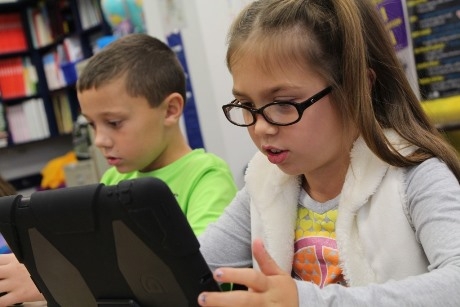We look at ways to teach children about internet safety as well as methods to incorporate the use of phones, apps and the internet in a positive manner, with educational benefits when on school trips.

A report released today by Children’s Commissioner Anne Longfield, has suggested that children between the ages of eight and 12 find the impact of social media difficult when moving to Secondary school.
Longfield has called on the Government to introduce compulsory digital literacy lessons for Year 6 and 7 pupils in order to prepare them for the emotional side of social media. The warning has highlighted the importance of not only making children more aware of the risks of social media, but also preparing them for the transition to Secondary school.
It also raises the question of how phones and technology can be used in a positive way for educational purposes, such as school trips. We look at a selection of apps to help pupils get the most out of school trips, as well as attractions that offer internet safety education.
Teaching children about internet safety
The importance of internet safety cannot be ignored and there many centres which can teach children about the various risks of using phones and the internet.
The Sutton Life Centre, in South London, offers workshops on Internet Safety, suitable for Key Stages 2 and 3, which is the age in which a majority of children tend to start using phones especially with the move from Primary to Secondary school.
The Safety Centre, also known as Hazard Alley, in Milton Keynes is another attraction which offers visits and presentations linked to internet safety, among other topics such as road safety and fire safety. The interactive facility provides children with real life situations, and during a internet themed visit, pupils will watch a video presentation about social media and the dangers of being online.

Attractions with apps
Using the internet doesn’t always need to be considered dangerous and negative; there are ways in which students can use their phones for educational purposes too.
An example of this is the England’s Historic Cities app. The free app can be downloaded on phones, meaning it can be accessed by pupils on a school trip to aid learning outcomes. The app can be used in 12 locations in England and allows pupils to explore the secrets of some of history’s most fascinating characters through digital channels before, during and after their visits. The cities that the app can be used in are: Bath, Canterbury, Cambridge, Carlisle, Chester, Durham, Greenwich, Lancaster, Lincoln, Oxford, Salisbury, Stratford-upon-Avon and York. The app can be accessed and downloaded here.
The Alice Town Trails in Llandudno give pupils the chance to explore Llandudno’s ties to Alice in Wonderland, as well as provide a number of games so that the class can interact with the story. Each trail is accompanied with its own app that will allow pupils to meet 3D characters from the story on their journey, whilst learning interesting facts about the landmarks visited through audio commentary.
Apps for school travel
Duolingo is a good app for learning another language, which could be ideal for students going on a trip abroad. The app offers fun games involving listening, reading and speaking tests, which are available in a number of languages.
Google Maps may sound like an obvious choice, but it could come in handy when on a school trip, especially with one where students are allowed to roam. With live updates, the app can act like a satnav and help navigate students and teachers to their destinations.
The use of mobiles, the internet and social media among the younger generation is inevitable, however preparing pupils and allowing them to engage with different medias will help them make better decisions when it comes to going online. The use of educational apps on school trips allows them to take in what they are learning in a more relatable way and gives them more responsibility as well as helps them be more confident.
How do you use digital technology in a positive way for school trips and learning outside the classroom? Let us know to share with other teachers, contact editorial@schooltravelorganiser.com.










